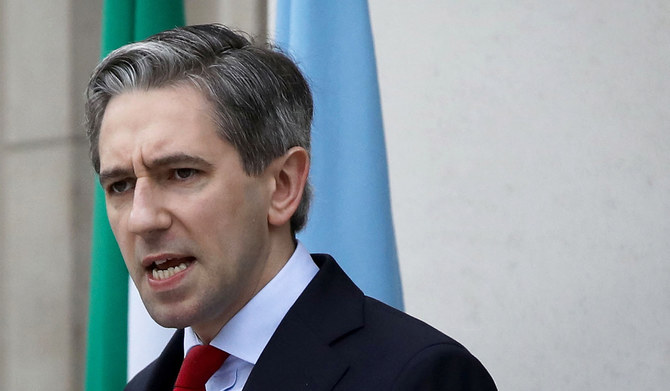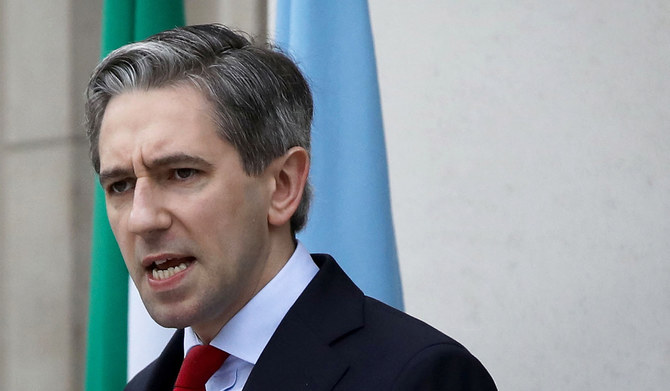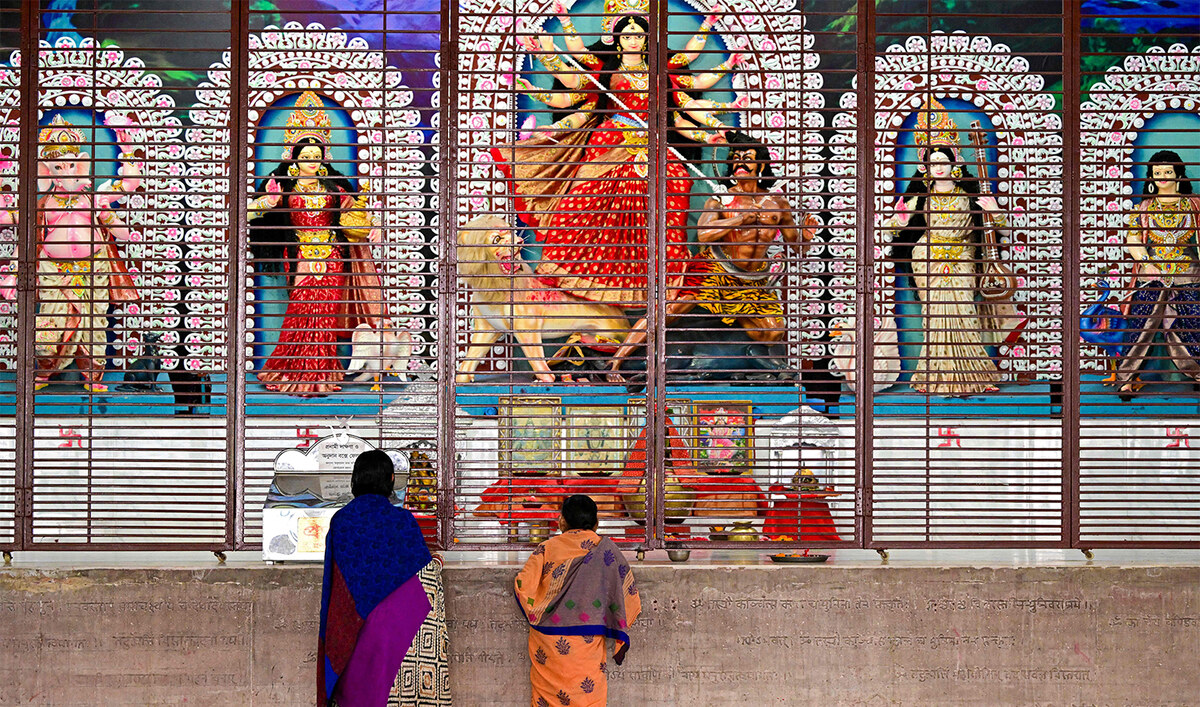DUBLIN: Irish Prime Minister Simon Harris condemned violent anti-immigration clashes on Monday at a planned asylum-seeker housing facility in Dublin as “reprehensible,” as 15 were arrested.
The clashes are the latest at sites earmarked for asylum seekers who have arrived in Ireland in growing numbers in recent years.
Videos posted on social media showed machinery and construction materials on fire at the building site, a former paint factory in the north of the capital.
Protesters threw bricks and launched fireworks at police, who used pepper spray to disperse the crowd of more than 100 mostly male teenagers.
Irish Prime Minister Simon Harris said “no person has a right to burn cars, damage property” or attack the police.
“These actions are criminal and are designed to sow fear and division. We should not accept them being legitimized in any way by describing them as ‘protest’,” Harris added in a statement.
“A number of Garda vehicles have been damaged,” police said, using the name for the Irish national force.
One video showed a person, believed to be a worker at the site, which is planned for repurposing as an accommodation facility for up to 500 asylum seekers, being removed from the scene on a stretcher.
Protests at the site entrance have delayed the start of work “for several months,” the integration ministry said.
The violence was sparked by a provider attempting to start work, said the ministry, which is responsible for housing asylum seekers.
“The (ministry) condemns all acts of criminality and intimidation of providers and their employees,” it said.
Ireland’s Justice Minister Helen McEntee told the Irish Times newspaper that she was “appalled” by the scenes and that those involved would face the “full rigours of the law.”
Since 2022, there has been a sharp increase in arson attacks on properties around the country linked to accommodating asylum seekers.
During violent riots in Dublin last November that were sparked by unrest over increased immigration and ignited by a knife attack outside a school, rioters also targeted a number of properties used to house asylum seekers.



























